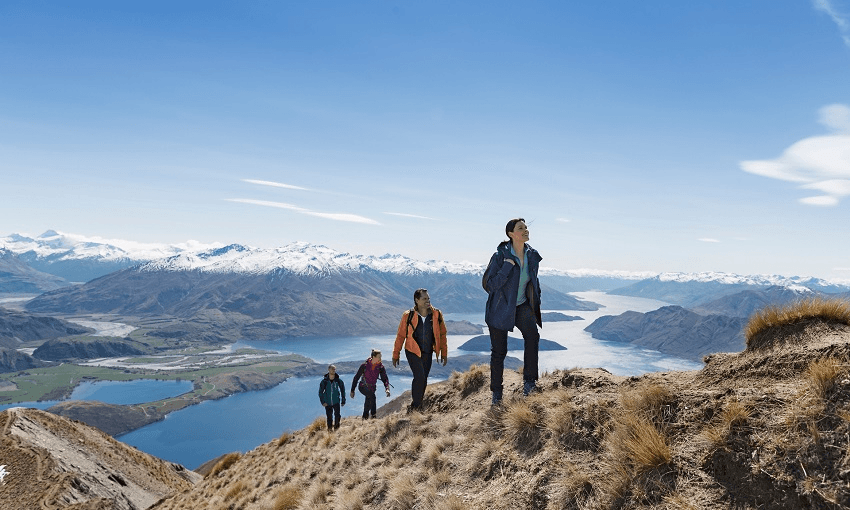Two decades on since ‘100% Pure’ New Zealand is slipping behind in environmental innovation. We need to act now to preserve our hard-won global image, writes James Araci.
This year will be the 20th anniversary of New Zealand’s ‘100% Pure’ tourism campaign.
Whatever you think of that slogan, there’s no doubt it has created billions of dollars of value for us far beyond the tourism sector. It has helped drive valuable export revenue for food, animal and wood products, as well as demand for our expertise in areas such as geothermal energy and the traceability of products.
It has also generated great expectations, not only for the visitors who flock to our lush national parks and sweeping beaches every year, but also for those we work and trade with internationally.
They expect us to live up to our ‘clean and green’ image and to be at the forefront of environmental innovation. With our greenhouse gas emissions among the highest per person in the world and various challenges threatening to disrupt our primary industries, we should be taking a lead in developing innovations that can help tackle environmental problems on a global scale while earning export dollars.
The reality
The reality is a bit different. Despite leading the world in the percentage of public funding for environmental research and development (R&D), the value of our environmental innovation exports has declined in recent years (down 6 per cent between 2013 and 2017). We actually had an environmental innovation trade deficit of $1.1 billion in 2017.
Business investment in environment-related R&D is relatively low — $1 is spent by the private sector for every $12 the Government invests.
On international benchmarks measures like the Global Green Economy Index and the Global Cleantech Innovation Index, we are lagging behind other small advanced economies such as Singapore, Denmark, Finland and Norway.
NZ innovators
Yet New Zealand boasts a rich ecosystem of researchers and companies passionate about tackling the big environmental issues we are facing. For example Mint Innovation is a promising biotech startup that is using chemistry and microbiology to recover valuable metals from electronic waste. And Armatec Environmental is already achieving significant international success by working with various industries on the most difficult of challenges, reducing industrial emissions.
There’s also a strong appetite for seed and early-stage investment in these creative companies working on environmental innovation.
Tackling climate change will require whole new ways of doing business based on more sustainable practices. Consumer priorities are also changing, with growing interest in plant-based diets and buying from producers closer to home. A wave of new industry standards and government requirements are emerging that will require us to work harder to substantiate our environmental credentials as we ship our goods all over the world.
A smarter approach
We now have a prime opportunity to improve our game and protect our hard-won green image. But we’ll need a smarter approach to innovation to seize that opportunity.
Great Kiwi ideas are emerging. The 2017 OECD Science, Technology and Industry Scoreboard suggests that New Zealand is building a technological advantage in environmental innovation due to recent growth in environmental patents.
If we act now, and decisively, we can have it all – a good economy which helps our environment, and a good environment which helps our economy.
Countries like Finland have succeeded by quickly sharing new techniques through business networks and encouraging cooperation between large companies and innovative SMEs.
Numerous reports have concluded that we could accelerate adoption of our innovations by focusing on those New Zealand companies which already have a global footprint and therefore more opportunities to achieve visibility and scale. Much of our innovation is aimed at tackling our own environmental problems, when we could also be using our extensive capabilities to tackle global environmental challenges.
At the same time, we need to focus more of our R&D investment on truly disruptive startups which will produce innovations that can be quickly scaled up internationally.
As Aotearoa’s innovation agency Callaghan Innovation has a role to play helping everyone in the sector achieve our collective potential. It will be publishing a full report on environmental innovation later this year, which is expected to give a clearer picture of where we are now.
The level of disruption our industries face is unprecedented and the economic growth model that has served us so well is fast approaching its environmental limits. We need to act now to preserve our hard-won reputation while taking our environmental innovations to the world.
Accelerating innovation while building new businesses and a better environment won’t be easy, but given our promising emerging innovations and valuable export strengths, I think it’s a prize worth fighting for.
James Araci is Callaghan Innovation’s future insights manager for biotech. You can contact him at futures@callaghaninnovation.govt.nz


